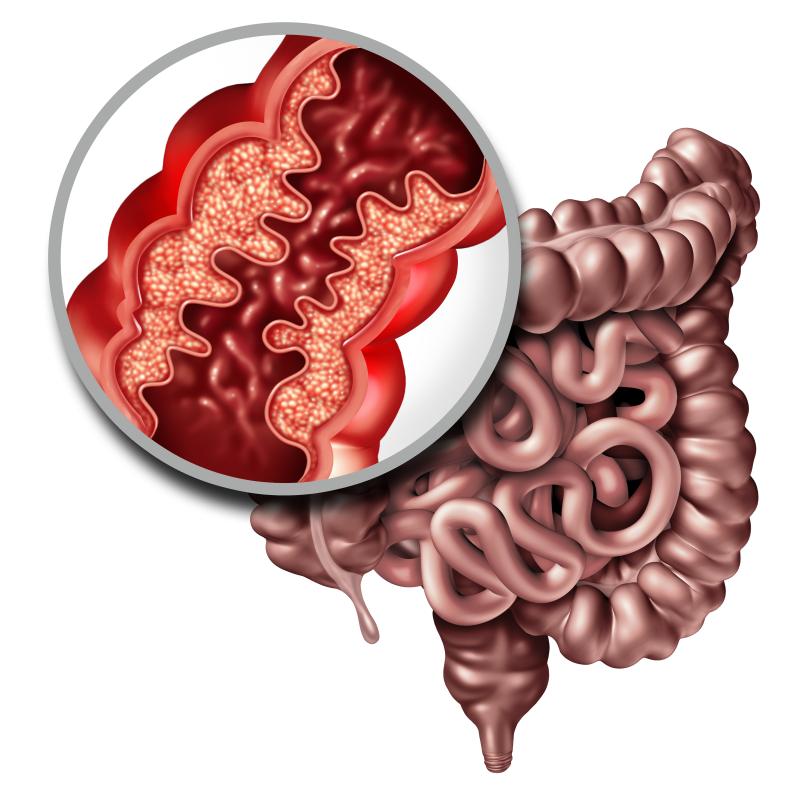
Use of vedolizumab for inflammatory bowel disease (IBD) does not contribute to an increased incidence of malignancies, with data from the GEMINI LTS study showing that the rate is similar in groups of patients who received the 4- and 8-weekly infusion regimens.
The current analysis included 1,785 IBD patients (mean age, 39.5 years; 49 percent female) with ≥1 year of follow-up after vedolizumab initiation. Of these, 1,034 had Crohn’s disease (CD) and 751 had ulcerative colitis (UC).
In 5,670 patient‐years of included vedolizumab exposure, 31 patients (mean age, 51.2 years; 45 percent female) developed malignancies, including 17 with CD and 14 with UC.
Prior use of anti‐TNFα therapy in the group that developed malignancies was documented in 65 percent of CD patients and 57 percent of UC patients; the corresponding proportions in the LTS study were 62 percent and 43 percent.
Researchers indirectly standardized the number of patients experiencing malignancies in the LTS study against the number expected using age- and sex-specific rates in IBD patients from Optum's Clinformatics Data Mart (CDM) database and found that the numbers did not significantly differ (31 vs 29; ratio of observed to expected events, 1.08, 95 percent confidence interval [CI], 0.73–1.53; p=0.71). The most common sites of malignancies were renal and bladder (n=6), lower gastrointestinal (GI) tract (n=5), and respiratory tract (n=4).
In the postmarketing setting, 293 patients reported 299 malignancies (including malignancies within 1 year after vedolizumab initiation) in about 208,050 patient-years of vedolizumab exposure. Lower GI malignancies were most common (n=59).
Despite the presence of limitations, the existing data revealed no evidence of any significant increase in incidence of malignancy in patients with IBD receiving vedolizumab, the researchers said.